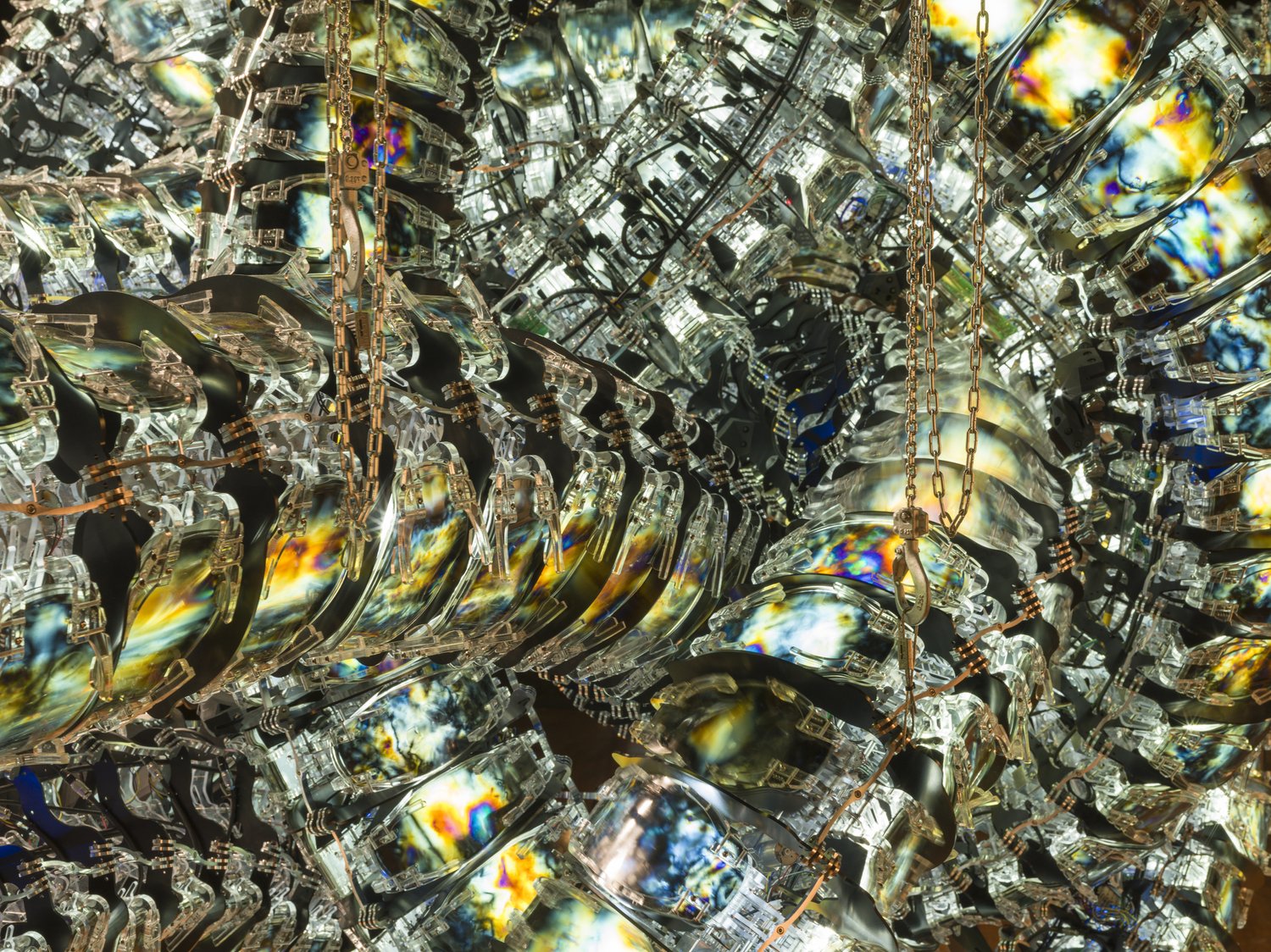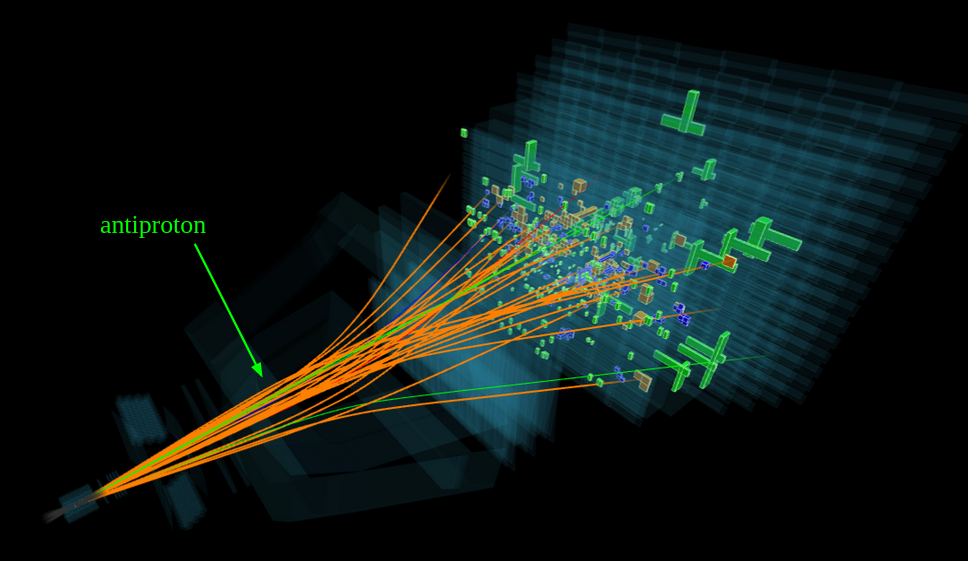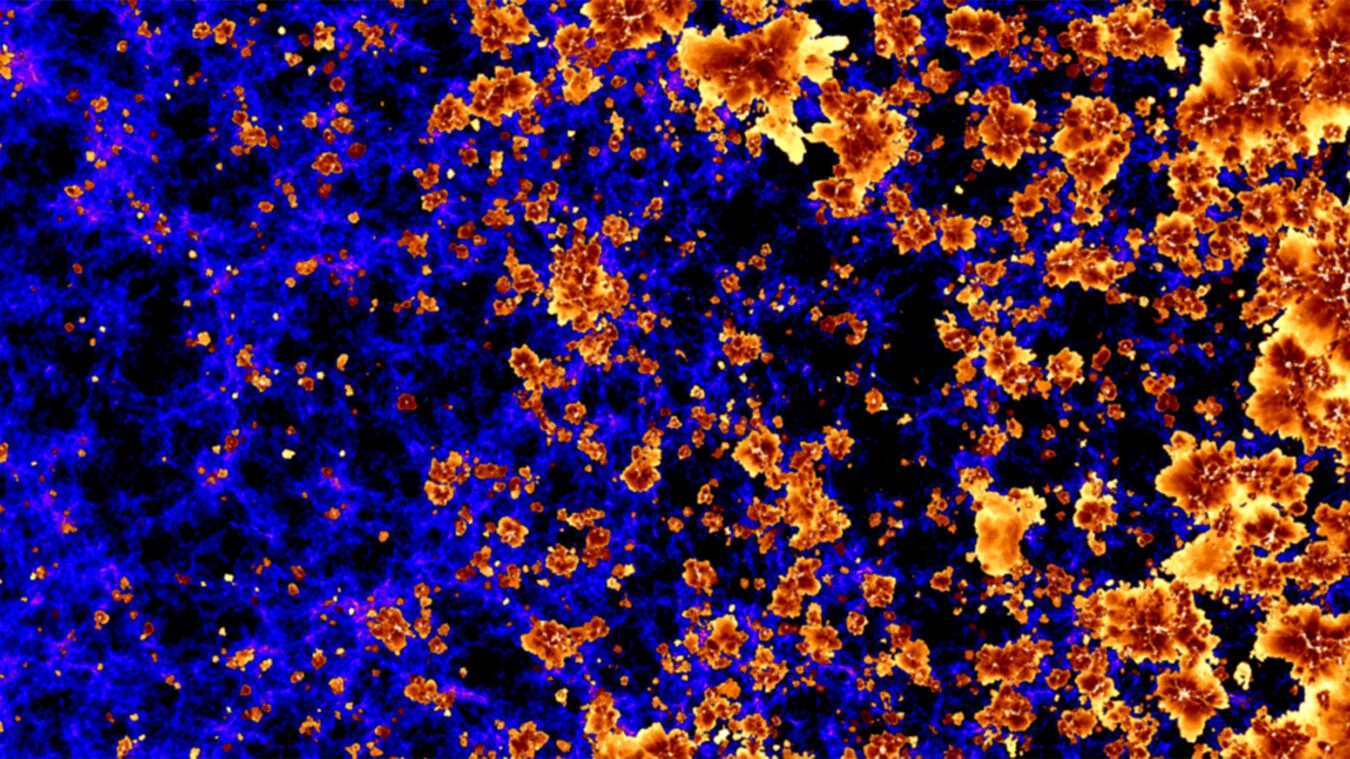搜索结果: 1-15 共查到“国际动态 星系与宇宙学”相关记录1004条 . 查询时间(2.451 秒)
天文学家发现罕见极环星系
天文学 极环星系 澳大利亚
2024/1/15

Arts at CERN collaborates with Science Gallery Melbourne and the ARC Centre for the exhibition “Dark Matters”(图)
墨尔本 科学画廊 ARC中心 “黑暗物质”展览
2023/7/11
国外研究揭示最早静止星系特征
最早静止星系 GS-9209 星系特征
2023/8/21
英国爱丁堡大学科研人员领导的研究团队首次使用詹姆斯韦伯太空望远镜揭示了最早静止星系GS-9209的特征。这个星系比银河系小10倍左右,但拥有的恒星总数与银河系相似,恒星总质量约为太阳的400亿倍,并且这些恒星是在GS-9209星系完全形成之前迅速形成的。
国外首次捕捉到Ia超新星爆炸起源
a超新星 爆炸起源 射电探测
2023/8/21
经过数十年的尝试,天文学家借助位于英国曼彻斯特大学Jodrell Bank天文台的e-MERLIN望远镜网络,首次对Ia型超新星进行射电探测,利用射电辐射找到了Ia型超新星爆炸的起源,证实SN 2020eyj来自由一颗白矮星和一颗太阳型恒星组成的双星系统。研究结果发表于《自然》杂志上。
美国耶鲁大学和NASA合作探索月球起源
月球起源 月球极区挥发物 月球岩浆海洋演化
2023/8/21
美国耶鲁大学科研人员加入了月球起源与演化中心(CLOE)项目,重点关注地球进化和生命演化进程。该项目由美国国家航空航天局(NASA)资助,旨在研究月球的起源和早期发展,将开展一系列地球月球起源基础研究,以支持未来人类对月球背面的探索。

Between two infinities: Our place in the Universe – a conference by Gianfranco Bertone on 1 June(图)
天文学 理论天体粒子物理 引力波
2023/5/25
美国发现具有大恒星能量的微小星系
大恒星能量 微小星系 引力透镜
2023/8/21
美国明尼苏达大学科研团队利用詹姆斯·韦伯太空望远镜(JWST)的首次观测,发现了一个独特的微小星系。该星系以极高的速度产生新的恒星,是在这个距离(大爆炸后约5亿年)发现的最小星系之一,可帮助天文学家更多地了解宇宙诞生后不久就存在的星系,研究早期星系的形成方式。相关研究发表在《科学》上。
美国绘制出中子星系统阵风图
中子星系统 阵风图 吸积盘
2023/8/21
美国麻省理工学院天文学家在大力神X-1(Hercules X-1)中观察到了更广泛的风带,在该系统中,一颗中子星正在从一颗类太阳恒星中吸取物质。这颗中子星的吸积盘在旋转时会摆动或“进动”(precess)。通过利用这种摆动,天文学家首次捕捉到旋转圆盘的不同视角,并创建了盘风的二维地图。新地图揭示了风的垂直形状、结构、以及速度(约每秒数百公里或每小时一百万英里),这是吸积盘可以旋转的较温和的一端。




Scientists develop the largest, most detailed model of the early universe to date(图)
早期宇宙模型 黎明女神 Thesan 辐射
2023/6/9



